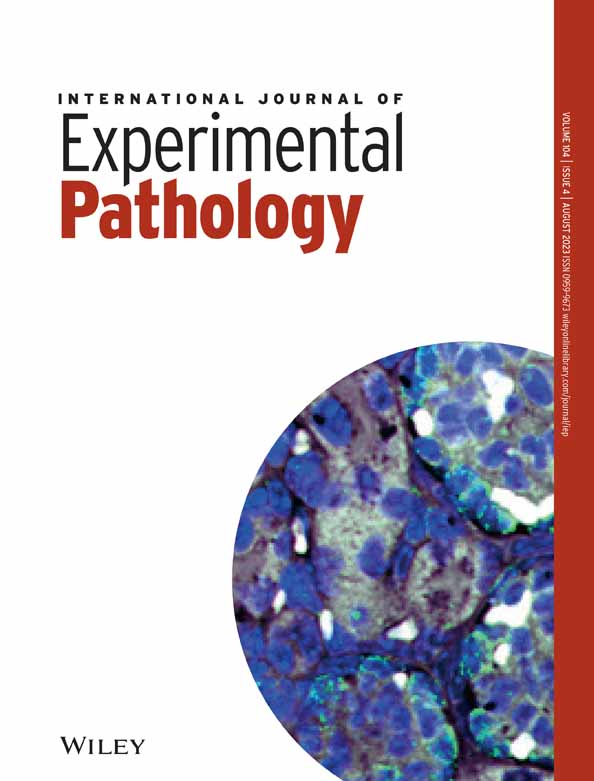Arginine vasopressin deficiency and conivaptan (a V1a–V2 receptor antagonist) treatment reverses liver damage and fibrosis in rats with chronic portocaval anastomosis
Abstract
Arginine vasopressin (AVP) is a naturally occurring hormone synthesized in the hypothalamus. AVP demonstrates pro-fibrotic effects as it stimulates hepatic stellate cells to secrete transforming growth factor-β (TGF-β) and collagen. Previous work in liver cirrhotic (CCL4-induced) hamsters demonstrated that AVP deficiency induced by neurointermediate pituitary lobectomy (NIL) can restore liver function. Therefore, we hypothesized that liver fibrosis would decrease in portocaval anastomosis (PCA) rats, which model chronic liver diseases, when they are treated with the V1a–V2 AVP receptor antagonist conivaptan (CV). In this study, changes in liver histology and gene expression were analysed in five experimental groups: control, PCA, NIL, PCA + NIL and PCA + CV, with NIL surgery or CV treatment administered 8 weeks after PCA surgery. Body weight gain was assessed on a weekly basis, and serum liver function, liver weight and liver glycogen content were assessed following euthanasia. Most PCA-induced phenotypes were reverted to normal levels following AVP-modelled deficiency, though hypoglycemia and ammonium levels remained elevated in the PCA + CV group. Liver histopathological findings showed a significant reversal in collagen content, less fibrosis in the triad and liver septa and increased regenerative nodules. Molecular analyses showed that the expression of fibrogenic genes (TGF-β and collagen type I) decreased in the PCA + CV group. Our findings strongly suggest that chronic NIL or CV treatment can induce a favourable microenvironment to decrease liver fibrosis and support CV as an alternative treatment for liver fibrosis.
CONFLICT OF INTEREST STATEMENT
The authors declare that they have no conflicts of interest.




